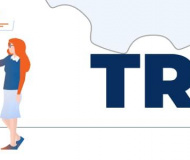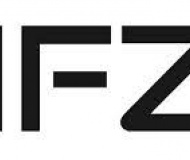What Is Direct Public Offering (DPO)?
News:
Date added: 01.10.2019
Direct Public Offering is a type of securities public offering in which the company offers its securities directly to the buyer without resorting to the services of intermediaries - investment banks, broker-dealers, and underwriters, which are always used when referring to such an instrument for attracting investments as initial placement of securities (IPO, Initial Public Offering). In the case of DPO, the company independently sells its securities.
The exclusion of intermediaries from the public offering significantly reduces the cost of raising capital. Thus, DPO is attractive for small companies and companies with an established and loyal customer base. DPO is also known as direct placement.
Key moments
By using direct public offering (DPO) or direct placement, a company raises capital by offering its securities directly. DPO allows the company to eliminate intermediaries that are usually part of such an offer, and ultimately reduce costs.
Independent fundraising allows the company to avoid restrictions on bank and venture financing, and the terms of placement are established exclusively by the issuing company.
Before DPO, a company must submit compliance documents to each regulator in each state where this company plans to offer its securities; but unlike an IPO, the company does not need to register with the US Securities and Exchange Commission.
How does the direct public offering work?
When a company issues securities through a direct public offering, it independently collects money without restrictions related to bank and venture financing. The terms of the offer depend only on the issuer, who directs and adapts the process following its own interests.
So, the issuer independently sets the offering price without agreement with the underwriters, the minimum amount of money per investor, the limit on the number of securities that any investor can buy, the settlement date and the offer period during which investors can purchase securities and after which the offer will be closed.
In some cases, when a large number of shares is issued, or time is of the essence, the issuing company may use the services of a broker to sell part of the shares to clients or potential clients of the broker for a commission.
Issuing companies can raise capital from an unlimited number of persons without complying with the strict security measures required by the SEC, since most of them rely on key exceptions to the registration of securities, for example, exemption 504, exemption 506 (b), exemption 506 (c), exemption A, and exemption A +.
Time for a direct public offering of securities
The time intervals required to prepare for DPO can vary - so the whole process can take several days or several months. At the preparation stage, the company prepares documents on the securities offering, which describes all the activities of the issuer and the type of security that will be offered to a wide range of people.
Securities that can be sold to investors by DPO include ordinary shares, preferred shares, various debt securities, etc.
The advantage of the direct offering is that the company independently decides how exactly the marketing of securities will be carried out and how the roadshow will be built. Potential options include advertising in newspapers and magazines, social networks, public meetings with potential investors, telemarketing campaigns and many other ways.
The most of DPOs do not require issuers to register with the Securities and Exchange Commission. For example, Rule 147 exempts a company from registering with the SEC until the company is registered in the state where it offers securities and sells securities only to residents of that state.
How is the initial direct public offering of securities announced?
After obtaining permission from the regulatory body, the issuing company conducting the DPO makes an official publication of its offer to purchase securities to investors.
The issuer makes its securities available for sale to accredited and non-accredited investors or investors whom the issuer already knows, that is, they are members of his family or long-term business partners.
These investors may also include acquaintances, customers, suppliers, distributors, and company employees. An offer shall be closed when all offered securities have been sold or when the closing date of the offer period has been closed.
How are securities obtained through DPO traded?
Although the issuing company may raise funds from investors, a trading platform for the exchange of securities will still be unavailable. Unlike an IPO, which is usually traded on the stock exchange immediately after the placement, a company entering a DPO will not have such a trading platform, but it can offer its securities in OTC markets. Like any OTC securities, DPO securities may face a lack of liquidity.

















